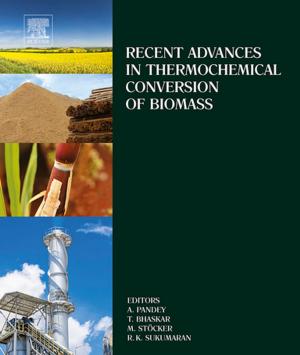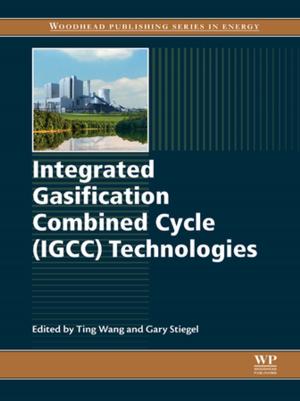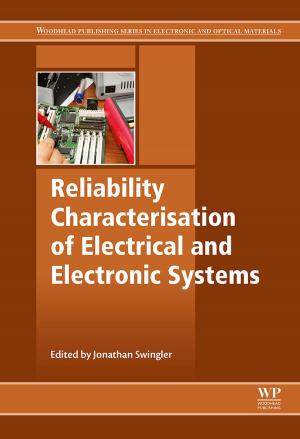Developing the Global Bioeconomy
Technical, Market, and Environmental Lessons from Bioenergy
Nonfiction, Science & Nature, Technology, Power Resources, Business & Finance, Industries & Professions, Industries| Author: | ISBN: | 9780128052907 | |
| Publisher: | Elsevier Science | Publication: | May 2, 2016 |
| Imprint: | Academic Press | Language: | English |
| Author: | |
| ISBN: | 9780128052907 |
| Publisher: | Elsevier Science |
| Publication: | May 2, 2016 |
| Imprint: | Academic Press |
| Language: | English |
Developing the Global Bioeconomy: Technical, Market, and Environmental Lessons from Bioenergy brings together expertise from three IEA-Bioenergy subtasks on pyrolysis, international trade, and biorefineries to review the bioenergy sector and draw useful lessons for the full deployment of the bioeconomy.
Despite the vast amount of politically driven strategies, there is little understanding on how current markets will transition towards a global bioeconomy. The question is not only how the bioeconomy can be developed, but also how it can be developed sustainably in terms of economic and environmental concerns. To answer this question, this book’s expert chapter authors seek to identify the types of biorefineries that are expected to be implemented and the types of feedstock that may be used.
They also provide historical analysis of the developments of biopower and biofuel markets, integration opportunities into existing supply chains, and the conditions that would need to be created and enhanced to achieve a global biomass trade system that could support a global bioeconomy. As expectations that a future bioeconomy will rely on a series of tradable commodities, this book provides a central accounting of the state of the discussion in a multidisciplinary approach that is ideal for research and academic experts, and analysts in all areas of the bioenergy, biofuels, and bioeconomy sectors, as well as those interested in energy policy and economics.
- Examines the lessons learned by the bioenergy industry and how they can be applied to the full development of the bioeconomy
- Explores different transition strategies and how the current fossil based and future bio-based economy are intertwined
- Reviews the status of current biomass conversion pathways
- Presents an historical analysis of the developments of biopower and biofuel markets, integration opportunities into existing supply chains, and the conditions that would need to be created and enhanced to achieve a global biomass trade system
Developing the Global Bioeconomy: Technical, Market, and Environmental Lessons from Bioenergy brings together expertise from three IEA-Bioenergy subtasks on pyrolysis, international trade, and biorefineries to review the bioenergy sector and draw useful lessons for the full deployment of the bioeconomy.
Despite the vast amount of politically driven strategies, there is little understanding on how current markets will transition towards a global bioeconomy. The question is not only how the bioeconomy can be developed, but also how it can be developed sustainably in terms of economic and environmental concerns. To answer this question, this book’s expert chapter authors seek to identify the types of biorefineries that are expected to be implemented and the types of feedstock that may be used.
They also provide historical analysis of the developments of biopower and biofuel markets, integration opportunities into existing supply chains, and the conditions that would need to be created and enhanced to achieve a global biomass trade system that could support a global bioeconomy. As expectations that a future bioeconomy will rely on a series of tradable commodities, this book provides a central accounting of the state of the discussion in a multidisciplinary approach that is ideal for research and academic experts, and analysts in all areas of the bioenergy, biofuels, and bioeconomy sectors, as well as those interested in energy policy and economics.
- Examines the lessons learned by the bioenergy industry and how they can be applied to the full development of the bioeconomy
- Explores different transition strategies and how the current fossil based and future bio-based economy are intertwined
- Reviews the status of current biomass conversion pathways
- Presents an historical analysis of the developments of biopower and biofuel markets, integration opportunities into existing supply chains, and the conditions that would need to be created and enhanced to achieve a global biomass trade system















